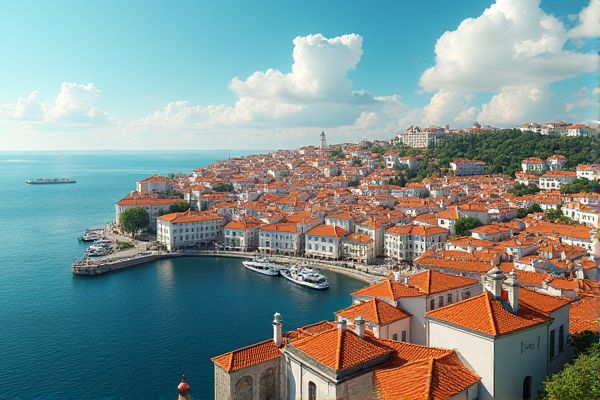
Local laws and regulations in Portugal: Residency permit requirements. Tax obligations for residents. Housing rental agreements. Driving license regulations. Healthcare access and registration. Employment and labor laws. Education system requirements. Business registration procedures. Waste disposal regulations. Pet importation rules.
Residency permit requirements.
To obtain a temporary residence permit in Portugal, you must meet specific requirements, including having a monthly regular income of at least EUR1,070, providing documents such as a valid passport, health insurance, police clearance certificate, and proof of accommodation, and applying for a residency visa before registering for the residence permit with the SEF. After five years of legal residency, you can apply for a Permanent Residence Permit, which requires basic knowledge of Portuguese, sufficient means of subsistence, and a place of abode in Portugal.
Tax obligations for residents.
Residents in Portugal are required to file taxes on their worldwide income, with tax rates ranging from 14.5% to 48%. They must submit their annual income statement, known as Modelo 3, by June 30. Additionally, they are obligated to contribute to social security and face various local taxes, including the Municipal Property Tax (IMI) and road tax (IUC). For more detailed information on these obligations and other taxation aspects, you can visit the Portugal Taxes for Expats guide.
Housing rental agreements.
In Portugal, new rental laws introduced in 2024 include stricter eviction criteria, limitations on rent increases, and regulations for converting commercial properties into residential spaces. Landlords must demonstrate just cause for eviction, update lease agreements to comply with new standards, and ensure rental units meet habitability and safety requirements. For more information and insights on navigating these changes, visit the Portugal Portfolio. These updates are crucial for both tenants and landlords to understand, as they significantly impact the rental market dynamics in the country.
Driving license regulations.
To obtain a driving license in Portugal, you must be over 18 years old, live in Portugal for at least 185 days, and comply with physical, mental, and psychological conditions. Additionally, you are required to pass both theory and practical tests. The license is valid for 15 years and must be revalidated every 15 years until age 60, then every five years until 70, and every two years thereafter. To know more about the requirements and regulations, you can visit the detailed guide on obtaining a Portuguese Driving License.
Healthcare access and registration.
To access Portugal's public healthcare system, residents must register with the local health center (centro de saude) to obtain a Numero de Utente, providing documents such as proof of address, residence card, and social security number. Additionally, EU citizens can take advantage of their European Health Insurance Card (EHIC) for temporary stays. For more detailed information on this process, you can visit C1 Brokers' Understanding Portugal's Healthcare System page.
Employment and labor laws.
The Portuguese Labor Laws, governed by the Labour Code and the Portuguese Constitution, regulate crucial aspects such as working hours with a maximum of 40 hours per week, minimum rest periods mandating 11 consecutive hours, and vacation days amounting to 22 days per year. Additionally, these laws focus on health and safety, alongside offering protection from discrimination in the workplace. Employment contracts can be either written or verbal, although certain types, such as those for foreign workers and part-time contracts, are required to be in writing. For more detailed information on these regulations, you might find the comprehensive overview on Expatica insightful, especially when navigating the intricacies of employment conditions in Portugal.
Education system requirements.
In Portugal, education is mandatory and free from ages 6 to 18, divided into four stages: preschool (ages 3-6), primary education (ages 6-15) in three cycles, secondary education (ages 15-18) with various course options, and higher education (ages 18 and above). The entire system is regulated by the Ministry of Education and the Ministry of Science, Technology, and Higher Education. For more detailed insights, you can explore the Portuguese Education System, which elaborates on the structure and opportunities available within each educational stage.
Business registration procedures.
To register a business in Portugal, you must choose a business name, register with the Commercial Registry Office, provide identification and proof of address documents, draft the Articles of Association, open a bank account for the minimum share capital, and apply for necessary licenses and tax registrations. The process can be completed online via the Empresa Online system or in person at a Commercial Registry Office.
Waste disposal regulations.
Starting from January 1, 2024, Portuguese municipalities are required by law to collect and manage organic waste separately, implementing dedicated collection systems and processing the waste through composting or anaerobic digestion to produce valuable resources like compost or biogas. This initiative, outlined on the DaFabrica4You website, aims to enhance sustainability efforts, reduce landfill dependency, and promote a circular economy by converting organic waste into beneficial materials.
Pet importation rules.
When planning to import pets into Portugal, it's essential to ensure they are microchipped and vaccinated against rabies at least 21 days before travel. Additionally, pets must be accompanied by an EU Pet Passport or a veterinary certificate endorsed by the relevant authorities. It's important to note that pets must be at least 15 weeks old and must be notified to the point of entry no later than 48 hours prior to arrival. For comprehensive details on bringing pets to this beautiful country, visit the guidelines outlined by BringFido.
